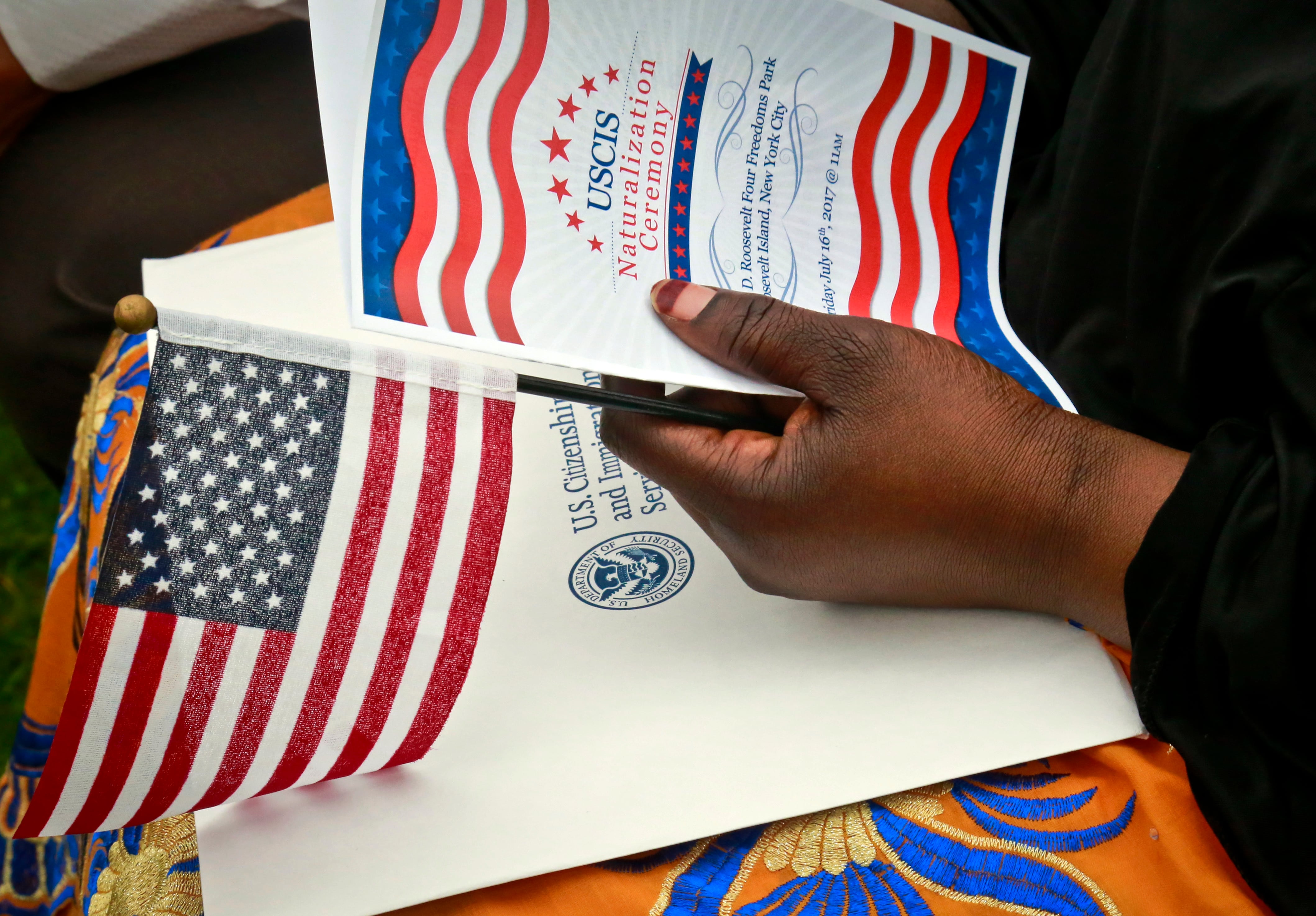A Belize-born Marine Corps veteran won his battle for U.S. citizenship on Tuesday, completing a naturalization interview that had been on hold for more than a year, according to a release from his attorneys.
Former Sgt. Roman Sabal, 59, had been eligible for citizenship under the Immigration and Nationality Act, but a series of missteps landed him deported last year.
“We are thrilled that Roman will finally be able to return home as a U.S. citizen. Despite a decades-long process, Roman never gave up the hope of coming home to his family,” his attorney, Helen Boyer, said in the release. “But it should not take a federal lawsuit to force the government to adjudicate the citizenship applications of those who have served in uniform. Deported veterans deserve better.”
Sabal, on a tourist visa, enlisted using a fake identity in the ’80s, then served six years in the Corps and several more in the Army Reserve.
He told the San Diego Union-Tribune last year that he confessed his deception during boot camp, but was told, “Don’t worry about it. You’re a Marine now.”
After leaving the military, he applied for citizenship in 1995. In the mean time, he had two children with an American citizen, and in 2008, returned to Belize for diabetes treatment. When he made his way back to the U.S. in 2016, it triggered an immigration case, and then a deportation order.
So in July 2019, when he finally had an appointment for a citizenship interview, Border Patrol turned him away as he tried to enter California. That denial prompted an outcry in the veteran community, and Sabal began working with a team of attorneys to sue the federal government.
“While the law provides a clear path to citizenship, the government has failed in its duty to make that path accessible to deported veterans,” Talia Inlender, also on Sabal’s team, said in the release. “By failing to perform basic functions — including background checks, interview scheduling, and timely decision making — the government routinely denies deported veterans their rights under the citizenship laws.”
Sabal’s case followed that of another former Marine, Mexico-born Marco Chavez, who in 2017 returned to the U.S. 15 years after he’d been deported for a criminal conviction.
RELATED

Those stories caught the attention of Army veteran Sen. Tammy Duckworth, D-Ill., who earlier this year proposed a bill that would specifically help veterans who served honorably with their naturalization process.
The Strengthening Citizenship Services for Veterans Act, which the Senate Judiciary Committee has yet to consider, would require Customs and Border Patrol to grant veterans parole to attend their citizenship proceedings in the U.S., regardless of a deportation order.
“Roman Sabal was willing to put on the uniform to protect our nation and what happened to him was a disgrace,” Duckworth said in a statement Tuesday. “While he never should have been deported in the first place, much less denied entry to complete his naturalization process by the Trump Administration, I’m so proud to finally be able to call him a fellow American.”
Meghann Myers is the Pentagon bureau chief at Military Times. She covers operations, policy, personnel, leadership and other issues affecting service members.





